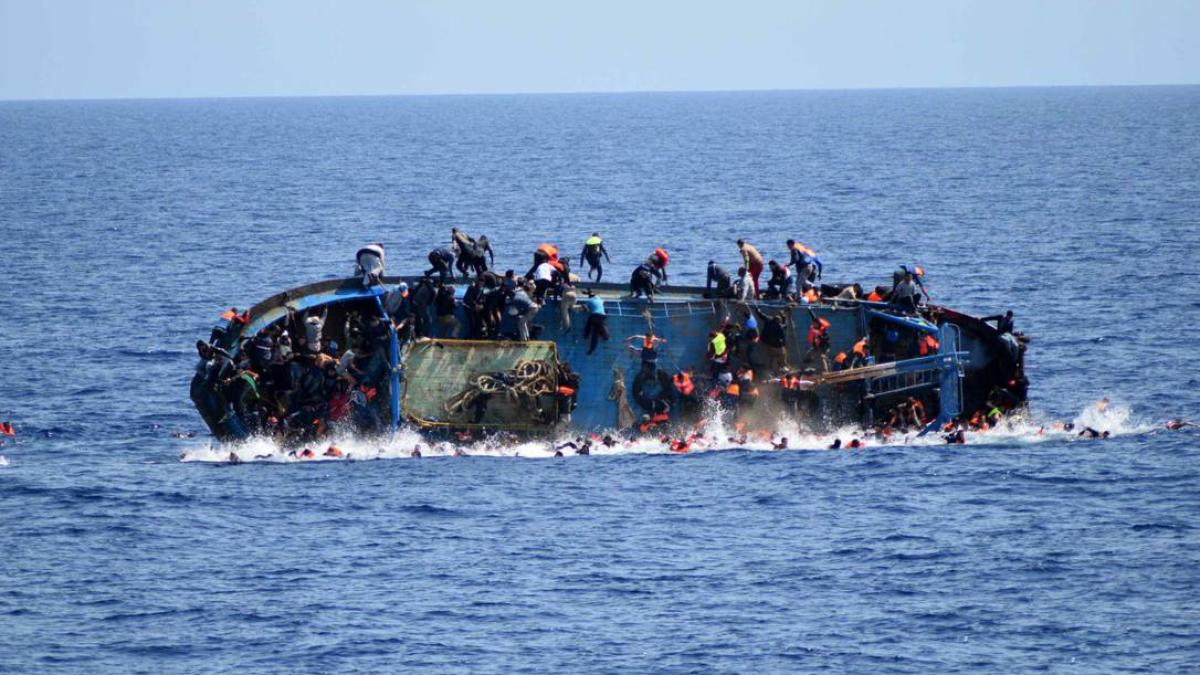The Spanish and Moroccan authorities’ handling of a migrant shipwreck this week near the Canary Islands has drawn heavy criticism from NGOs, the slowness in coming to their rescue and the dozens dead.
According to the Spanish rescuers, two people, including a minor, lost their lives, and 24 passengers were rescued, Wednesday, after the shipwreck, which occurred 160 km from the coast of the island of Gran Canaria in the Atlantic Ocean.
But according to the Spanish NGO Caminando Fronteras, which bases its data on testimonies from migrants or their families, another 37 people were on the boat and are reportedly missing.
Neither the Spanish rescuers nor Morocco – which, according to the Spanish authorities, took care of the 24 rescued migrants – confirmed the presence of other passengers.
But the criticism multiplied on Friday with denunciations of an ineffective system, as well as the unwillingness of authorities in both countries to help migrants.
in a panic
According to Helena Malino, from Caminando Fronteras, 17 hours elapsed between the moment the ship in distress was identified by the Spanish Coast Guard’s sea rescue plane and the arrival of the Moroccan navy.
Malino told Spanish radio station Canal Sur that the plane located the rubber boat “around 8 pm” on Tuesday but “decided that the person who had to rescue the ‘migrants’ was Morocco.”
He explained that the Spanish rescuers “took hours to communicate with Morocco”, which in turn took hours to intervene, although there were “people in a state of panic, on a rubber band without eating, exhausted”.
According to Radio Cadena SER – which published an audio recording of the pilot who sighted the boat, noting that there were “about 50 people on board” – the Spanish rescue ship was an hour away from the rubber dinghy.
Spain defends itself
In a statement released on Friday, the Spanish rescue service, however, denied any responsibility and confirmed that the ship had to return to port because it had “just rescued 63 people” from another boat with problems, “many of whom needed attention because of the condition they were in.” “.
The memorandum stated that “Salvamento Maritimo has acted fully in accordance with international coordination standards and procedures,” according to which the pneumatics were in the joint responsibility area of both countries. The statement said Morocco had “explicitly taken over the coordination” of the rescue of the boat, which was “closer to the African coast.”
After several requests for comment, the Moroccan authorities did not respond to AFP.
In response to a question from journalists, the spokeswoman for the Spanish government, Isabel Rodriguez, for her part, confirmed that she could not “provide detailed information” about the tragedy.
Meanwhile, the Spanish Ombudsman announced on Friday that it had launched an ex officio investigation to try to clarify how the rescue was carried out.
Migrant boat departures (on several occasions, from the disputed territory of Western Sahara, mostly controlled by Morocco) to the Canary Islands have multiplied in recent days.
On Thursday, the Spanish authorities announced that they had rescued at least 350 migrants within 24 hours.
The NGO Save the Children asked, “How many children must die (…) before the European Union takes action?” , noting that the shipwreck in the Canary Islands occurred just a week after another was recorded in Greece, where hundreds of people could have died.
Since the tightening of controls in the Mediterranean, the migration route to the Canary Islands has been particularly busy. Shipwrecks are frequent on this trip, which is dangerous due to the strong currents and poor condition of the boats.
According to a report published by Caminando Fronteras at the end of 2022, more than 11,200 migrants have died or been reported missing since 2018, trying to reach the Spanish coast, one of the main ports of entry for illegal immigrants in Europe.

“Music buff. Social media lover. Web specialist. Analyst. Organizer. Travel trailblazer.”

:quality(85)/cloudfront-us-east-1.images.arcpublishing.com/infobae/TEQF6EONZRFGLLLDIDD4L2O4EE.jpg)

:quality(75)/cloudfront-us-east-1.images.arcpublishing.com/elcomercio/XU32LRAEZFDDPNVHLFU3CKVBYY.jpg)



More Stories
Sheinbaum, Galvez, Mainz campaign wrap-up, news and more
Sheinbaum and Mainz’s CDMX campaign wraps up: Road Alternatives and Street Closures
Ortega attacks Humberto Ortega and declares him a “traitor to the country”